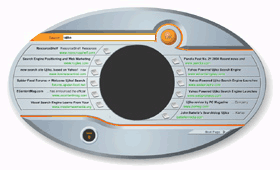
I just finished Adler & Van Doren's classic How to Read a Book, which I can't believe I never read until now. (Actually, I think I started it once, but abandoned it. Ironic.) The authors outline a system of analytical reading and "syntopical" reading to allow you to get the most out of any book, and stretch your reading capabilities. Not that all books are worthy of analytical reading. There is an appendix in the back of the book of their recommendations of great books that are worth the effort.
Syntopical reading (their term) is the process of analyzing several books on one topic in order to formulate a discussion on the issue. This is essentially wht is required to write anything at the graduate level, and it is immesely helpful to have the process explicity and systematically explained. I could have used this last semester!
Of course, in order to be an expert reader, one has to read books of quality. (Reading for information and reading for pleasure are not going to improve one's mind.) The guilt I feel upon examining my own reading habits has inspired me to do two things: First, I am going to buy the Great Books of the Western World collection, so I can syntopically examine the greatest ideas by the greatest minds of all time. Second, since I have a month before school starts, my next novel will be one I have been putting off for some time: Tolstoy's War and Peace. The length has always been daunting to me, but I just realized that if I add up the pages I expect to read in the next month, they would be equal to the length of W&P anyway. Why read three or four shallow books when I can read one great one?
On a lighter note (hey, not everythig I read has to be cannonical), I just finished Julie Powell's Julie & Julia, an account of one woman's self-appointed project to prepare every recipe in Mastering the Art of French Cooking within a year. This was a lighthearted and fun book, especially as I love cooking, and what with my immense regard for Julia Child (another Julia who admires Julia). The tone was a little cynical for me, but I had a fun time living through her failures and trumphs (I have had my own experiences with recipes in my copy of MtAoFC.) I found myself propelled though the book in order to find out how the project ended. It was touching as well.




